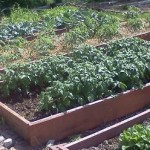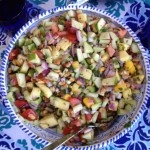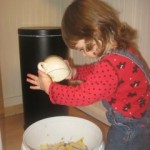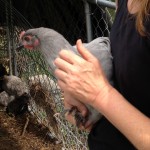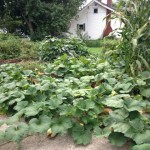Food Justice as Integrative Healthcare for Creation
by Miriam Dolin
Food justice has long been a passion for me. To be fair, anything to do with food is a passion for me. I love making food. I love thinking about flavors and textures and imagining how I can create something beautiful and delicious. I love the smells of cooking. I love eating food. I believe food is beautiful. I love wandering around the aisles of grocery stores admiring the shapes and colors of produce and the smells of the spices.
But, like so many of us, food also brings with it some emotional baggage. Obesity is no stranger to my loved ones. Though I have never experienced true hunger first hand, I have certainly seen its devastating effects on those around me. I have driven past miles of fields left fallow because of water shortages, government regulations or escalating farming costs.
I have felt the pang of guilt as I make my own food choices in the grocery store, weighing questions of cost, ingredients, production . . .
Food is all around us and is a staple of life. It can bring pleasure, but also pain. On such a complicated and personal issue, how can we possibly even begin to ask questions (much less answer them!) about food justice?
It was shortly after a move to San Francisco about 5 years ago that the full scope of food justice came into view for me. At the time, I was on a quest to get healthier by eating better and exercising more. The abundance of fresh produce year round and smaller portions as the norm, coupled with a culture that encourages activity and has near-perfect weather, and my quest for health seemed more pleasure than chore.
I limited how much meat I was eating, trying to focus instead on fruits and vegetables. Since I have strong feelings about how animals are treated in the meat industry that helped strengthen my resolve. Shortly after deciding to essentially cut out meat from my diet, I heard a shocking statistics about the meat industry’s impact on the environment and climate change. Learning this was shocking to me because I had simply never considered the connection between the two. It was curious and refreshing to know that a fairly easy decision was improving the health of my body and of the planet.
I became increasingly involved in food justice over the next few years. As a teacher, I am particularly passionate about children’s nutrition, as we are forming their life-long nutritional habits while they are eating at both their parents’ table and their school cafeteria.
Living in California, news of farmers and the agricultural industry is commonplace. I often wonder how my food choices impact migrant workers. I wonder if organic farming or fair trade products could possibly feed the world. I am a strong supporter of the “eat local” movement to reduce transportation costs and emissions, all while knowing that I live in the geographical area that produces the much of the produce for the country.
And yet, in San Francisco, a city in the middle of hundreds of miles of farmland, some of the poorer neighborhoods are food deserts where that residents have no immediate, nearby access to fresh food. Instead these residents, many without transportation options, must rely instead on their corner store for packaged and processed foods. The economic interests of grocery stores, local politics and education all contribute to the creation and growth of these food deserts.
As I journey through this maze of what food justice means and see all of the points of our lives that it touches, my head begins to spin. If there is so much food injustice – more than I am even conscious of – how could I possibly wrap my head around any solutions?
And that’s when I circle back, once again, to my discovery that limiting meat consumption could help both me and the environment. I think about both the simplicity and wonder of creation. For thousands of years, there has been a natural order to creation and all living beings. It is when we try to control it that we knock the natural order off kilter. Similarly, in trying to live in a way that I treat my body as a temple, I realize that decisions that are good for my body are usually also good for the earth.
Certainly, there is a lot of work to do in the field of food justice and many people are working tirelessly in the effort. My current vocation does not afford me the opportunities to dive very deep into food justice right now and so I have developed a personal approach to living out food justice in my life. I think of food justice as a sort of integrative and holistic healthcare for creation. When I make decisions that help me be healthy, those same actions often make the planet a little better. Likewise, if I make other small choices – buying from local and smaller companies, those choices benefit workers and community education. Though these are only small factors, working as a community and world, they have a big impact.
Photos by Rev. MargaretAnne Overstreet
Miriam Dolin originally hails from Louisville, KY but has also called Memphis, Dublin, and currently San Francisco home. Her days are filled by convincing teenagers that history is fun as a high school teacher. An admirer of creation, Miriam runs, hikes, rock climbs, backpacks, camps, and looks at the stars. Miriam lives life fully and is rarely able to sit still. And she never turns down a good chocolate chip cookie!


